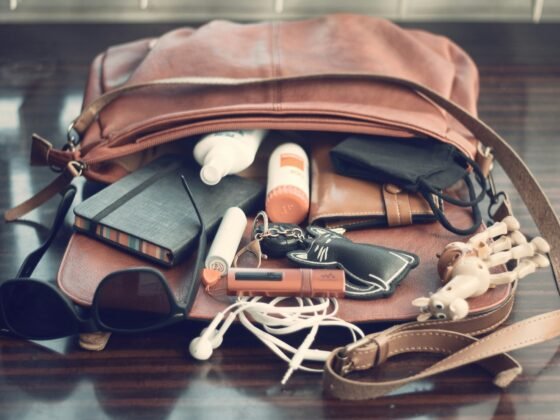Backpacking is a brilliant way to get out there and see the world on a limited budget; making it an extremely popular travel choice for students on a gap year who want a fun and infinitely varied trip without breaking the bank.
However, planning for your first solo trip can be a daunting prospect and it’s important to know what risks are associated with backpacking and how you can prepare for them. Take a look at the tips below to help you stay safe and get the most out of your trip:
Look after your health
It’s important to consider your health when planning for your backpacking trip, as you’ll encounter all sorts of health risks which could range from a fairly simple case of food poisoning to a tropical disease such as Malaria.
The good news is though, that it’s fairly simple to protect yourself from many potentially serious illnesses by a simple visit to your GP and a few quick vaccinations. You’ll need to do this several weeks in advance to allow for any repeat jabs, and you may need to take a course of tablets if you plan to travel to a malarious country; don’t forget to stock up on insect repellent too.
It’s also important to take out a comprehensive backpackers travel insurance policy before you set off on your travels. This will cover you for the cost of any medical treatment you might need as a result of an illness or accident whilst on your trip, and you’ll also get cover for cancellation – especially important in today’s fragile economy – theft and loss of luggage.
You can find further health advice and the recommended vaccinations for each country on the Foreign and Commonwealth Office website which can be found here.
Be careful with food and drink
It’s highly likely that you’ll get at least one stomach upset whilst you’re off travelling round the world, but there are some precautions you can take to guard against this. The biggest risk comes from drinking contaminated water or eating infected food so you should be careful to avoid street stalls (or watch which ones all the locals go to) and avoid drinks with ice in them. If you buy bottled water, check that the seal has not been broken to make sure it hasn’t been refilled with tap water.
Stay safe
It’s important to consider your personal safety when travelling on your own and a lot of the most popular backpacking destinations have high crime rates. Don’t despair though, there are a few things you can do to reduce the risk of becoming a victim.
Firstly, make sure you familiarise yourself with the areas you’ll be staying in and do your research prior to travelling so you know which areas are best to avoid. It’s always a good idea to stick to busy areas at night-time (just watch out for pickpockets) and try not to walk around on your own if possible.
Try to keep our valuables out of sight if possible and invest in a hidden money belt in which to keep your passport and cash (don’t forget not to reach into it in public or you’ll give the game away). Try not to keep all of your money in one place and split your spending money over a couple of methods of payment (prepaid credit cards are ideal for this and more secure than carrying cash).
Make sure you back up your holiday snaps at regular intervals too so that you won’t lose everything if your camera is stolen.
Practical Advice
I can’t emphasise enough the importance of packing light when embarking on a backpacking trip. You’re going to have to lug that backpack around every day for quite some time so you’ll soon regret taking that extra pair of jeans!
Everyone overpacks for their holidays, so you should aim to discard around half of what you initially pack. Going back to the jeans, you only really need one good, comfortable pair, and you should pack a selection of clothes that is suitable for the places you’ll be visiting. You’ll have plenty of opportunity to wash them at hostels and you shouldn’t need to take too many toiletries as you’ll be able to purchase these on your travels.
Don’t forget to sort out your paperwork well in advance too; you’ll need to apply for some tourist visas several weeks – or even a couple of months – ahead of when you are aiming to travel. E-tickets are another brilliant innovation which means you won’t have to worry about losing important paperwork, so aim to book through this system wherever possible.
It can be easy to be put off by all this talk of risks and dangers, but for many, backpacking is a fun and trouble-free experience, so don’t be too perturbed and, above all, enjoy your trip!









